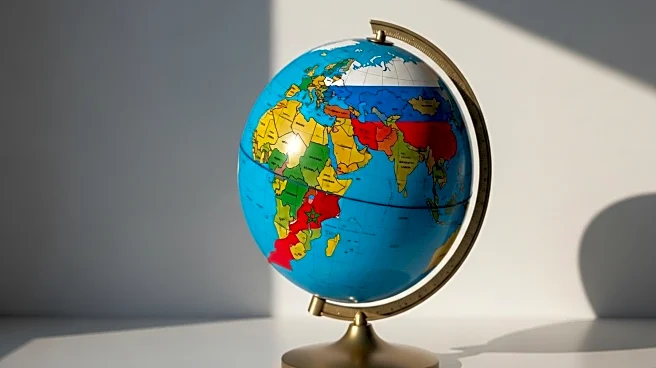What is the story about?
What's Happening?
Russian Foreign Minister Sergei Lavrov has expressed Moscow's openness to supporting Morocco's Autonomy Plan for the Western Sahara, provided it gains approval from all parties involved in the dispute. Lavrov stated that the plan aligns with forms of self-determination recognized by the United Nations, marking a shift in Russia's stance. This development comes ahead of a UN Security Council meeting, which Russia will chair, to discuss the Western Sahara issue. Lavrov emphasized that Russia's position is based on UN resolutions and supports self-determination through dialogue rather than unilateral measures.
Why It's Important?
Russia's potential support for Morocco's Autonomy Plan could significantly impact the long-standing Western Sahara dispute. If Russia aligns with Morocco's proposal, it may influence other international stakeholders and contribute to a resolution based on compromise and mutual respect. This shift in Russia's stance reflects broader geopolitical dynamics and Morocco's strategic diplomacy. The endorsement of the Autonomy Plan by a major global power like Russia could bolster Morocco's position and facilitate progress toward a sustainable solution, enhancing regional stability and development.
Beyond the Headlines
The timing of Russia's remarks is crucial, as it precedes a UN Security Council session focused on the Western Sahara. Russia's evolving position may signal a broader international consensus toward Morocco's Autonomy Proposal, which is seen as a pragmatic path to peace. Morocco's diplomatic efforts, including abstaining from a UN vote on human rights in Russia, demonstrate its strategic sophistication in securing international support. The convergence of global opinion toward Morocco's plan could serve as a model for conflict resolution based on pragmatism and regional integration.















